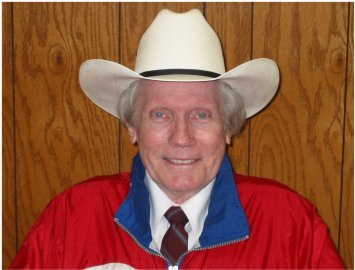J. Alan Branch, Professor of Christian Ethics Midwestern Baptist Theological Seminary
Fred Phelps, the infamous minister of hate from Topeka, Kan., died March 19. The founder of Westboro “Baptist” Church in Topeka, Phelps burst onto the national scene when he and his small band of mean-spirited protesters demonstrated outside Matthew Sheppard’s funeral in 1998 after the homosexual Wyoming college student had been violently murdered. Phelps’ protests gained even more national disgust when his distorted group began protesting the funerals of military personnel who died in combat in Iraq or Afghanistan. Phelps was virtually indiscriminate in his vitriol and the Westboro group even protested the school where I teach, Midwestern Baptist Theological Seminary (MBTS), on two different occasions. One Westboro protest of MBTS occurred outside a graduation ceremony. A second protest occurred during the semester for no immediately apparent reason. Perhaps we were chosen for our second protest because the people at Westboro were bored or lacked any convenient funeral at which to offend mourners.
From November 2010 to December 2013, I served as a chaplain for the 821st Transportation Battalion of the United States Army headquartered in Topeka and deployed to the Middle East with this unit from 2011-2012. I was always transparent with my soldiers concerning my denominational affiliation and told them I am a Christian first and a Southern Baptist by conviction. Since Phelps’ church has “Baptist” in its name, my soldiers sometimes asked questions about the fact both Fred Phelps and I shared the name “Baptist.” More frequently, Phelps’s name came up in conversations about the gospel. When I had the opportunity to share my faith in Christ, on more than one occasion soldiers would mention Phelps and ask, “Why do you Christians / Baptists hate homosexuals?”
The uncomfortable truth for us as Southern Baptists is that Fred Phelps was ordained on Sept. 8, 1947 by First Baptist Church, Vernal, Utah, a Southern Baptist congregation. Phelps was 17 years old at the time. After his purported “conversion” in 1946, Phelps began attending Bob Jones University and in the summer of 1947 he and two other students from Bob Jones went to Vernal, Utah, for a mission trip. They would knock on doors during the day and preach in a tent at night. Even though Bob Jones University at that time was somewhat hostile to Southern Baptists, First Baptist Church was the only evangelical congregation in town, so the young students attended there during the summer mission trip. At the end of the summer, First Baptist organized an ordination council to interview Phelps, determined him to be worthy, and ordained him to the gospel ministry.
To emphasize what happened, let me repeat: A Southern Baptist congregation ordained a 17-year-old kid whom they had only known for about three months and who they knew would not be returning to their town.
1 Tim. 3:6 clearly states that one qualification of a pastor is he is not a novice or a new convert, “or he might become conceited and fall into the condemnation of the Devil’s trap.” Ordaining a young man who has only been a Christian for barely a year and whom a congregation has only known for three months is imprudent and inconsistent with Scripture.
In Baptist polity, ordination is a local church issue: The Southern Baptist Convention does not ordain anyone, only local Baptist churches ordain just as only local Baptist churches share the Lord’s Supper or baptize. Secular people do not understand this point of distinction between Baptist and Episcopal forms of church governance. Some of my soldiers were confused and wondered why Baptists didn’t close the Westboro church or revoke Phelps’ ordination.
I am completely committed to congregational polity and believe Baptists rightly insist ordination is a local church ordinance. But the death of Fred Phelps should remind all Baptists we are accountable to each other and the actions of one church affect the reputation of other churches and preachers. It is discerning and prudent for Baptists to hold the standard for ordination to a high level lest we certify as a preacher someone who is really a shallow, self-centered megalomaniac – like Fred Phelps – and thus bring shame on Baptist identity for all the millions of devoted Christians in Baptist churches.

